Olfactive Families - Introductions
Both feminine, masculine and shared by men and women fragrances have been divided into seven basic groups -or fragrances families- which have then been split into subdivisions.
A CITRUS
By "citrus", we mean the essential oils obtained by extracting the zest from fruits such as bergamot, lemon, orange, mandarin, etc., combined with orange flower products. In this group we find the main "Eau de Cologne" fragrances used by men and women.
A1 CITRUS
A2 SPICY CITRUS
To that citrus accord, spicy notes such as clove or pepper, nutmeg or cinnamon are added to the citrus structures.
A3 AROMATIC CITRUS
The citrus structure is modified by the addition of aromatic notes, such as thyme, marjoram, rosemary, or mint.
A4 FLORAL CHYPRE CITRUS
These represent a new generation of "Eau de Cologne". The citrus note is still prominent, but it is jointed by other fresh notes and extended by a floral note, which is predominantly jasmine at first and then becomes woody and mossy.
A5 WOODY CITRUS
Still the same "citrus" accord, but slightly weaker. The floral note is barely detectable. The woody and slightly powdered base is more predominant.
A6 FLORAL WOODY CITRUS
Some light floral notes included in the citrus accord, with some very different woody notes.
A7 MUSKY CITRUS
To the citrus structure, we add a strong musky character which is instantly perceptible as well as some floral and woody notes. The musk note refers to the synthetic musks rather than to the animalic, natural tonkin musk.
B THE FLORAL FAMILY
This family consists of fragrances with a single flower as their main theme : jasmine, rose, lily of the valley, violet, tuberose, narcissus, etc.
B1 SOLIFLORE
Used when a single floral note is needed. This is the beginning of modern perfumery. A copy of nature with the reconstitution of a rose, jasmine, violet, lilac, lily of the valley...
B2 FLORAL MUSKY
On a floral accord, the musky note is present right away. We also find fruity, woody or aldehydic notes.
B3 FLORAL BOUQUET
Nature is still the source of inspiration but several floral notes are associated as in a bouquet of flowers. The composition becomes more complex, and raw materials are much larger in number.
B4 FLORAL ALDEHYDIC
It still is a floral bouquet, often extended by the addition of animal notes, powdery, slightly woody. The top note is always made up of aldehydes, associated with citrus or floral notes.
B5 FLORAL GREEN
A fresh and predominantly green note was added to a floral complex to give a sharp freshness. Galbanum is typical of the type of product used in this category.
B6 FLORAL FRUITY WOODY
On a floral bouquet, with a woody undertone, fruity notes are added : peach, apple, plum or apricot.
B7 FLORAL WOODY
The floral note, most important here, could be violet, jasmine, rose, lily of the valley or another flower. There are various top notes : citrus, herbaceous in particular. Followed by mostly woody, powdery, vanilla like notes.
B8 FLORAL MARINE
A classical floral bouquet associated to marine and mostly sea-breeze notes.
B9 FLORAL FRUITY
Since 1995, modern fruity notes have bloomed. The floral "body" is still there, but new fruity notes are showing strongly. There are apricot, raspberry, melon, litchi, pear or apple...
C THE FOUGERE FAMILY
This imaginary name which does not claim to represent a fern fragrance, consists of a blend generally made up of lavender, woody, oak moss, coumarin, and bergamot notes.
C1 FOUGERE
C2 FLORAL AMBER FOUGERE
A fougere accord blooming through a floral note lying on an amber-labdanum background.
C3 SOFT AMBER FOUGERE
These classical fougeres have an amber background whose smoothness is enhanced by vanilla notes.
C4 SPICY FOUGERE
These are basic, very classical fougeres, characterized by the presence of floral notes and above all the addition of spicy notes such as clove or pepper.
C5 AROMATIC FOUGERE
A fougere, of course, but closely linked to a citrus group, herbaceous, and above all aromatic such as thyme, wormwood, coriander, rosemary and sometimes light spicy notes.
C6 FRUITY FOUGERE
The base is a classical fougere showing the fruity tones noted in the floral fruity subfamily.
D CHYPRE
This name comes from the fragrance of the same name brought out by COTY in 1917. The success of "Chypre", made it the leader of this family which contains fragrances based mainly on harmonies of oak moss, cistus, labdanum, patchouli, bergamot, etc.
D1 CHYPRE
D2 FRUITY CHYPRE
Still the same Chypre harmony but fuller and enhanced with fruity notes such as peach, plum and exotic fruits.
D3 FLORAL ALDEHYDIC CHYPRE
This is the "floral aldehyde" canvas adapted to a floral Chypre combination rather than simply floral.
D4 LEATHER CHYPRE
To one of the already described structures, leather, smoky, burnt wood, animal notes are added to one of the above structures and these compositions are sometimes rounded off with a fresh, often citrus note.
D5 AROMATIC CHYPRE
Definitely Chypre, often floral (lavender) and dominant aromatic notes : thyme, wormwood, juniper, coriander.
D6 GREEN CHYPRE
In this type of note, there is a contrast between the fresh green top note (cut grass, crushed leaves) and a warm base.
D7 FLORAL CHYPRE
This is the Chypre structure with the addition of floral notes such as lily of the valley, rose, jasmine.
E THE WOODY FAMILY
These are warm or opulent notes, such as sandalwood and patchouli, sometimes dry like cedar or vetiver, the top note is usually made up of lavender and citrus notes.
E1 WOODY
E2 WOODY CITRUS CONIFEROUS
Here we discover woody notes where pine essences play a large part, with top notes of citrus fruits.
E3 WOODY SPICY
A gentle woody fragrance -predominant spicy notes : pepper, nutmeg, clove or cinnamon.
E4 WOODY AMBER
The base consists of warm, rich notes such as vanilla, hay, coumarin, cistus, labdanum, patchouli and sandalwood.
E5 WOODY AROMATIC
Woody harmonies mostly make up these compositions, often lavender, sometimes green, but always with an aromatic top note such as thyme, wormwood, myrtle, rosemary, sage.
E6 WOODY SPICY LEATHER
The woody spicy accord is increased with leathery and animal notes, like birch-tar and castoreum.
E7 WOODY MARINE
Interesting harmony with a woody aromatic accord combined with marine notes, increasing the thyme and armoise notes.
E8 WOODY FRUITY
A tree, some fruits... nothing is more natural... We find here again the newest fruity notes.
E9 WOODY MUSKY
The woody accord is blended with a musky accord. We also find spicy, fruity, aromatic or ambery notes.
F AMBER-ORIENTAL
Under the heading of "AMBER" or "ORIENTAL", we find fragrances with soft powdery notes, vanilla, cistus, labdanum, animal, very dominant. Is there a typical "amber" note ? Certainly ! See under "soft amber", six groups of ambers are listed.
F1 SOFT AMBER
This is where we find the most classical amber fragrances. They are recognizable by their softness and warmth and their particularly dominant aura.
F2 FLORAL SPICY AMBER
On this amber base there is a noticeable spicy note and the floral contribution is very distinctive (e.g. carnation).
F3 CITRUS AMBER
These amber products sometimes have a floral character -their citrus top note is quite pronounced.
F4 FLORAL WOODY AMBER
In that type of amber notes, the woody character is typical while the head notes are playing with floral variations.
F5 FLORIENTAL
A more subtle blend of the amber note in a strong olfactive harmony. Dominant notes : floral, fresh, spicy which integrate well into a very consistent bouquet.
F6 FLORAL FRUITY AMBER
The amber note is definitely here. The floral note can be diversified. The fruity note relies on apple, pear, apricot,
raspberry, strawberry, plum.
G THE LEATHER FAMILY
This has an exceptional formula, a slightly different concept of perfumery with dry, sometimes very dry notes, in the aim of trying to reproduce the characteristic fragrance of leather (smoke, burnt wood, silver birch, tobacco...) and top notes with floral inflexions.
G1 LEATHER
G2 FLORAL LEATHER
These are the "linear" non-aggressive leather notes, enhanced by floral notes : violet, iris, etc.
G3 TOBACCO LEATHER
The leather note is tempered with wood, honey and hay harmonies which characterize the virginian tobacco note.



